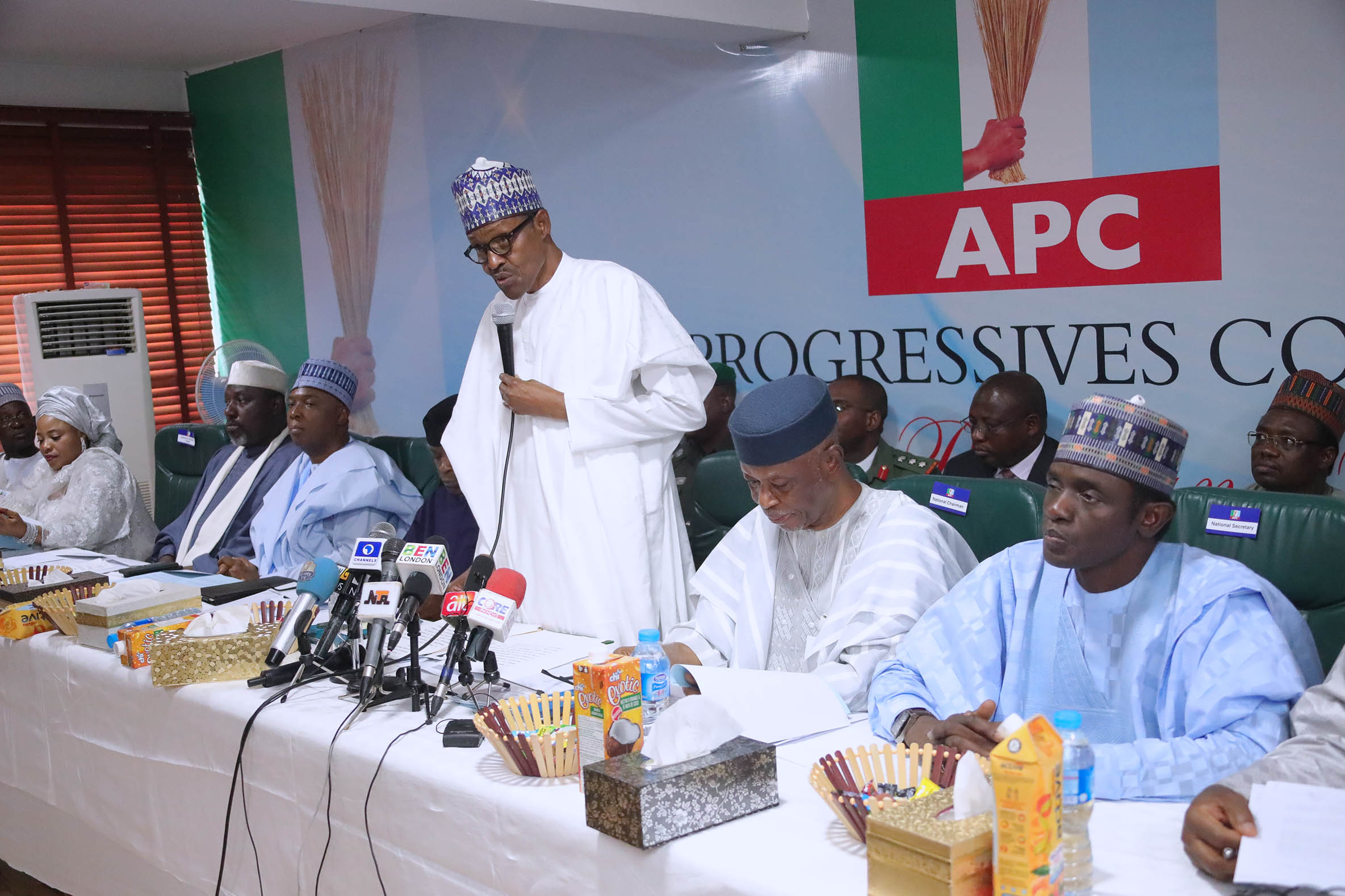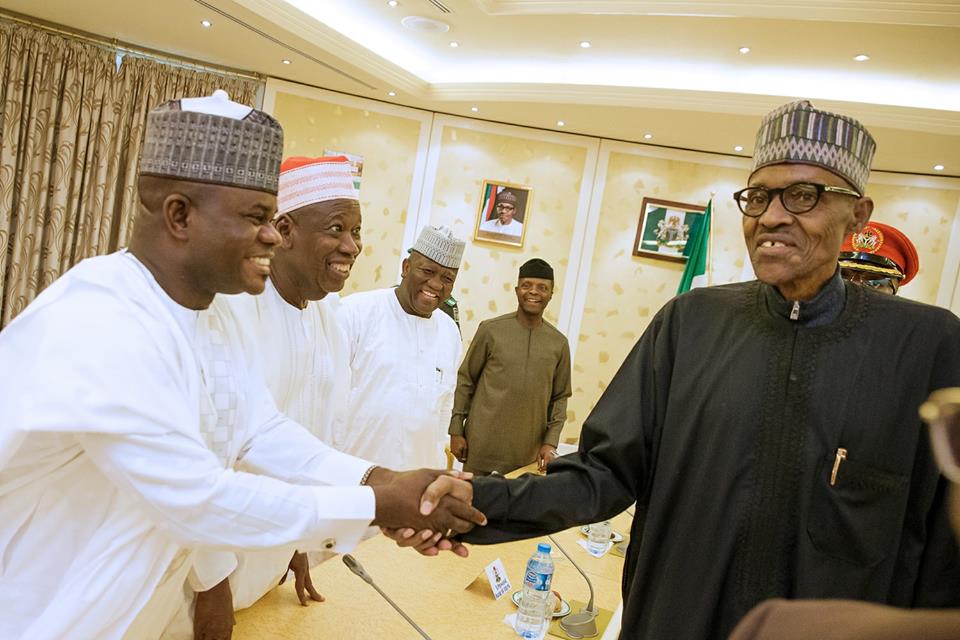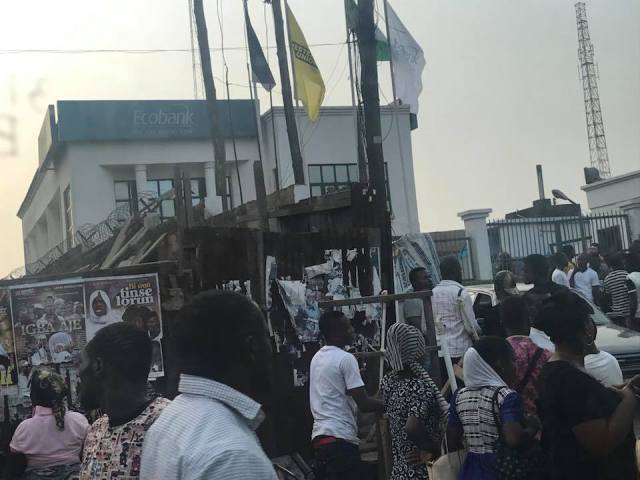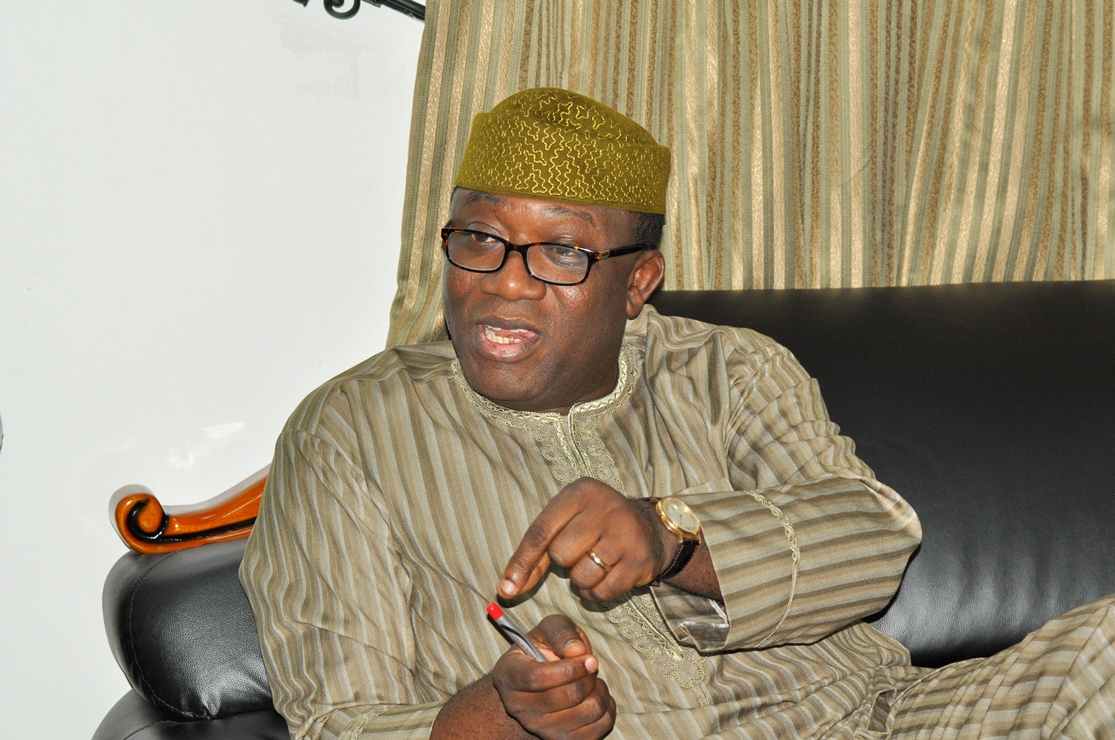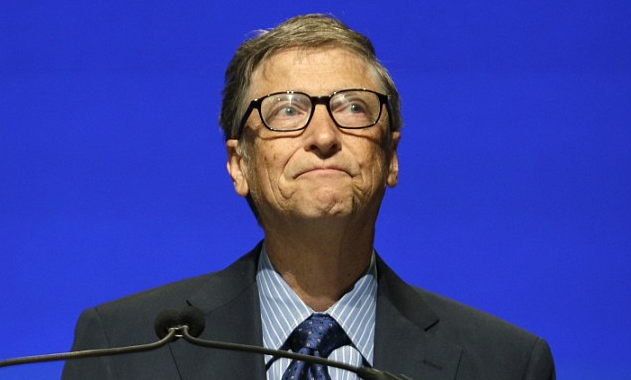Muhammadu Buhari addressing party officials at the national executive committee (NEC) meeting at the APC headquarters in Abuja on Monday.
I was surprised that some people seemed surprised that Buhari decided to seek re-election. I have always maintained that it will be unthinkable for any President of the country to forgo the opportunity of seeking re-election – even if that President is in coma. Aside from the natural allure of power, in our type of society, the office of President is by definition bigger than its occupant such that the decision on whether to seek for a second term or not is bigger than the occupant of that office. Once in office, a President will realize – or it will be drummed into his ears – that he is merely the person chosen by providence to represent certain primordial groups’ turn in holding that office. Add to this, the hangers-on and system beneficiaries whose livelihoods depend on the President continuing in office! For instance, before the gravely sick Yaradua died in 2010, there were already groups campaigning for his re-election, and arguing that his health challenges would be no impediment to his performance.
I argued elsewhere (at the height of the debate on whether Buhari would run in 2019 or not) that our concern with Buhari should not be whether he would seek re-election or not but whether he would accept defeat if he loses, and if he wins re-election, whether he can resist the temptation of elongating his tenure for a third term. Since the 1990s, almost 30 African Presidents had sought to amend the constitutions of their countries in other to elongate their tenures after exhausting their constitutionally allowed term limits.
Does Buhari really deserve re-election?
This will partly depend on one’s location in the country’s fault lines and one’s stand in the active controversies of the day. The truth is that the idea of ‘performance’ in office is highly subjective. For instance while critics can accuse the Buhari government of not having started and completed any infrastructure project since it came to office, supporters will see it as evidence that Buhari sees government as a continuum and did not want to jettison “uncompleted and abandoned” projects he inherited from his predecessors just to embark on vainglorious projects of his own. In essence, while critics can mention a thousand reasons why Buhari does not deserve re-election, his supporters can mention as many reasons why they feel that Buhari is the best thing that has happened to the country since the invention of egusi soup, amala or tuwon shinkafa. I have argued elsewhere that those who feel that the election will be won or lost on the basis of Buhari’s performance or non-performance in office have a lot to learn about elections in societies like ours. Several variables will interact – including our identity politics, who Buhari’s key opponents are, the attitude of leading foreign powers to the various candidates and other unknowable intervening variables – to determine who wins in 2019.
Advertisement
The games politicians play
Buhari and his strategists realize that they need a good outing in the South-west, which, as in 2015, will be the battle ground in 2019, if he hopes to win re-election. This calculation means that Bola Tinubu, once thought to be marginalized after the 2015 elections, is now being courted like a beautiful bride by the presidency. And Tinubu appears to be enjoying the attention (of course his options are limited). But in courting Tinubu, Buhari seems to face the Devil’s Alternative: though no one really knows Tinubu’s true electoral value in the South-west, a perception that he was used and dumped or treated shabbily will draw sympathies for him in the region and evoke memories of how some people from the region felt the late Chief Awolowo was shabbily treated after helping the Federal side to win the Biafran war. On the other hand, courting Tinubu and throwing the APC’s national Chairman Chief John Odigie- Oyegun under the bus will equally draw sympathies for him and alienate the anti-Tinubu forces loyal to him in both the South-west and outside it.
I think Buhari has been trying to balance the two options: the way he came against the ‘tenure elongation’ of the Oyegun-led National Working Committee (apparently without first taking them into confidence) was clearly aimed at placating Tinubu, who seems to be in Cold War with the APC National Chairman. On the other hand by pleading at the recently concluded National Executive Committee meeting of the party for waivers to be granted to members of the National Working Committee who wanted to re-contest, Buhari seemed to be also trying to mollify Oyegun and his loyalists.
Advertisement
The danger in playing this sort of games for Buhari however is that he can end up alienating both sides and some may choose to undermine his second term ambition secretly – even if they are officially drumming support for him.
Between the ballot box and the barracks in Africa: Prospects for enduring democracy in Nigeria
One of the first fat books I bought as a teenage undergraduate in political science at the University of Nigeria, Nsukka, in the early 1980s, was Readings in Nigerian Federalism edited by Professor Elaigwu. In those days one of the attractions of political science discipline to some of us was the opportunity to learn big words – the type Chinua Achebe would call the ‘English that filled the mouth’.
Elaigwu’s Readings in Nigerian Federalism had several mellifluous phrases and the ‘English that filled the mouth’. One of my favourite phrases from the book was: “It will be wrong to elevate the institutional manifestations of a phenomenon to its defining characteristics”. In conversations, I would bid for opportunity to release such phrases and quite often they earned me bragging rights and made me appear cleverer than I really was.
Advertisement
It was therefore a privilege that more than two decades later I would be asked to be the reviewer of the work of a scholar I had admired from a distance.
Between the Ballot Box and the Barracks in Africa: Prospects for Enduring Democracy in Nigeria was published this year (2018) by AHA Publishers, Jos. It is divided into three sections and 14 chapters.
Essentially the book is about the game of musical chairs between soldiers and politicians in Africa and in the context of Nigeria, the implications of this relay race for enduring democracy in the country. The author raises the salient issue of former military dictators civilianizing themselves during elections and posed several questions relating to this: Is a civilianized polity necessarily a democratic polity? Are elections the most crucial elements of democratic polity? To what extent have the patterns of civil-military relations affected democratic processes in Africa? Are African states riding on the bandwagon of democracy without adequate institutions suitable to the African environment? Is the current democratic project in Nigeria sustainable?
The above are some of the questions which the book seeks to provide answers to. In Section 1 of the book, which is spread over three chapters (Chapters 1-3), the author discusses the theoretical issues in civil-military relations in Africa such as the role of the military in the processes of state formation in the continent, reasons for military interventions in African politics and the patterns of civil-military relations. In section 2, which is spread over six chapters (chapters 4-9), the author situates some of the theoretical questions in section 1 as an empirical investigation of the Nigerian condition. Essentially in this section the author uses Nigeria as a case study to assess the various attempts by the military to craft a new democratic polity. In section 3, which is spread over four chapters (Chapters 10-13), the author discusses the pattern of governance of the various regimes in the current Fourth Republic – the Obasanjo years (Chapter 10), the Yaradua years (Chapter 11), the Goodluck Jonathan years and the Buhari government so far (Chapter 13). He concludes the book with a robust interrogation of the prospects of sustaining and deepening the current democracy project in the country (Chapter 14).
Advertisement
The launch of the book, which took place at Sheraton Hotel Abuja, on April 11, 2018, was attended by several dignitaries including the Sultan of Sokoto (ably represented by the Emir of Keffi); Governor of Benue State (represented by the State’s Deputy Governor); the Senate President (represented by his adviser on Legal Matters, Prof Jamo); former Governor Nyako of Adamawa and several other dignitaries. The chief presenter of the book, Alhaji Ismaila Isa Funtua, bought hard copies of the book for all universities in the country.
More information about the book could be obtained from 07031163751
Advertisement
Views expressed by contributors are strictly personal and not of TheCable.
Add a comment

